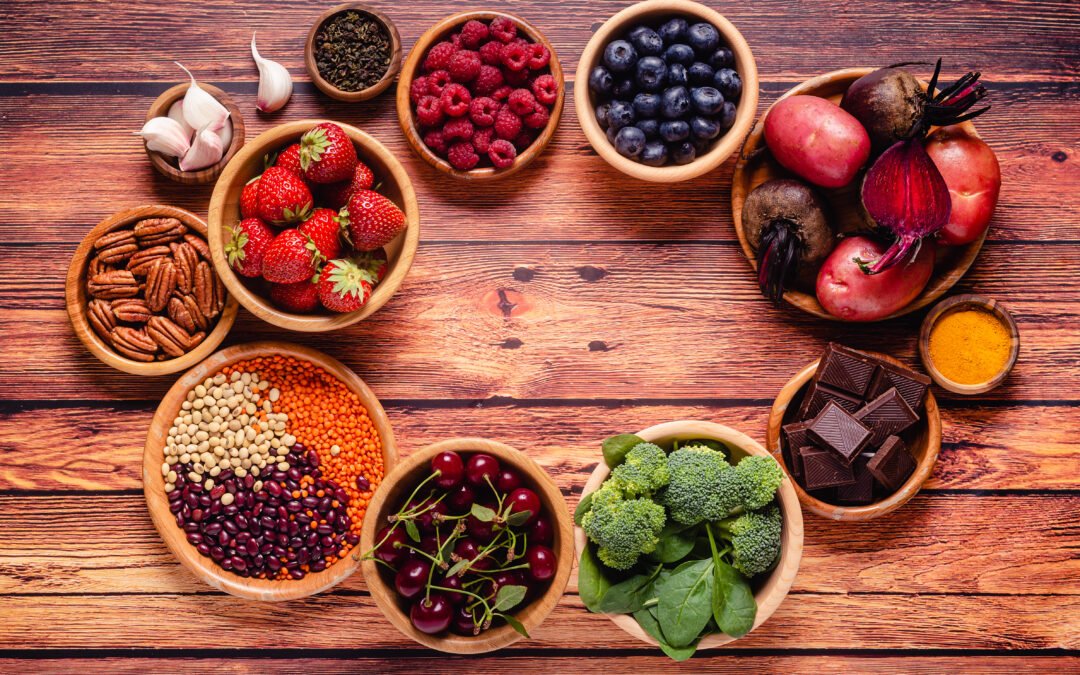If you have spent time researching health foods in the past few years you have probably already heard of antioxidants. However, most health posts merely mention antioxidants without actually explaining them.
In this article we will be explaining antioxidants, what they are, how they work, and the best way to get more in your diet.
What are antioxidants:
First discovered in the 1990s, antioxidants are extra stable molecules that help neutralize oxidative stress from free radicals.
So what are free radicals? Free radicals are unstable molecules inside of our bodies that are missing an electron. Due to their unstable nature free radicals move throughout our bodies causing causing oxidative stress which damages our cells and DNA. This damage isn’t significant but if left unchecked can lead to several issues.
Oxidative stress damage has been linked to several chronic problems such as heart disease, cancer, and cataracts. Some studies have even linked free radical damage with aging but this is still just a theory.
There are several reasons our bodies generate free radicals ranging from stress to habits to environmental factors. One of the biggest sources of free radicals is toxins such as cigarette smoke, alcohol or air pollution. Other sources include extended high-intensity exercise, excessive sunbathing, and excess sugars or fats in our diets. Free radicals can even come from excess consumption of antioxidants such as vitamins C or vitamin E.
What is the role of antioxidants:
Antioxidants consist of a wide range of molecules that our bodies can produce or acquire from some of the foods that we eat.
Antioxidants work by stabilizing free radicals. Antioxidants can move throughout our bodies interacting with free radicals. When antioxidants come into contact with free radicals one of two things generally happens. The first thing that generally happens is the antioxidant gives an unneeded electron to the free radical. The second option is for the antioxidant to take something from the unstable molecule stopping any damage.
There are several types of antioxidants that work within our bodies. Some different types of antioxidants found in our bodies include ubiquinol, glutathione, and uric acid. There are other antioxidants that our bodies need but these are all found in the foods we eat. It’s important to get antioxidants in our foods as our bodies don’t produce enough to keep us healthy.
What foods are the best sources antioxidants?
There are a lot of ways to add antioxidants to your diet. The best source of antioxidants is in whole foods. Here are some of the best foods for antioxidants:
Fruits and berries
There are lots of fruits and full of antioxidants. Some of these include blueberries, raspberries, strawberries, oranges, peaches, mangos, watermelon, figs, and tomatoes.
Vegetables
Antioxidants are yet another reason to eat your vegetables. Some of the best vegetables include broccoli, carrots, artichokes, cabbage, avocados, and sweet potatoes. You can also try collard greens, kale, lettuce, and spinach. Nuts and beans are other great options.
Spices
Spices are great for adding flavor to any meal, but they also add nutritional benefits. A few of the best spices include cinnamon, turmeric, oregano, parsley, curry powder, ginger, and mustard seeds. You can also try several different herbs including thyme, peppermint, basil, or dill.
Other great options for getting more antioxidants include dark chocolates, whole grains, most fruit juices, tea, and even coffee in moderation. You can also get them through dietary supplements.
The Takeaway
Antioxidants are an important part of any healthy diet and help slow cell damage to prevent chronic health issues or diseases. Antioxidants fight free radicals which can cause long term damage so its important to minimize their sources.
The human body has its own antioxidant defenses, but by adding antioxidant-rich foods to your diet more often you can lower the risk of suffering health complications. Try eating more fruits, green, leafy vegetables, adding herbs and spices to your food, using whole grains, or keeping some dark chocolate around for the occasional snack.

